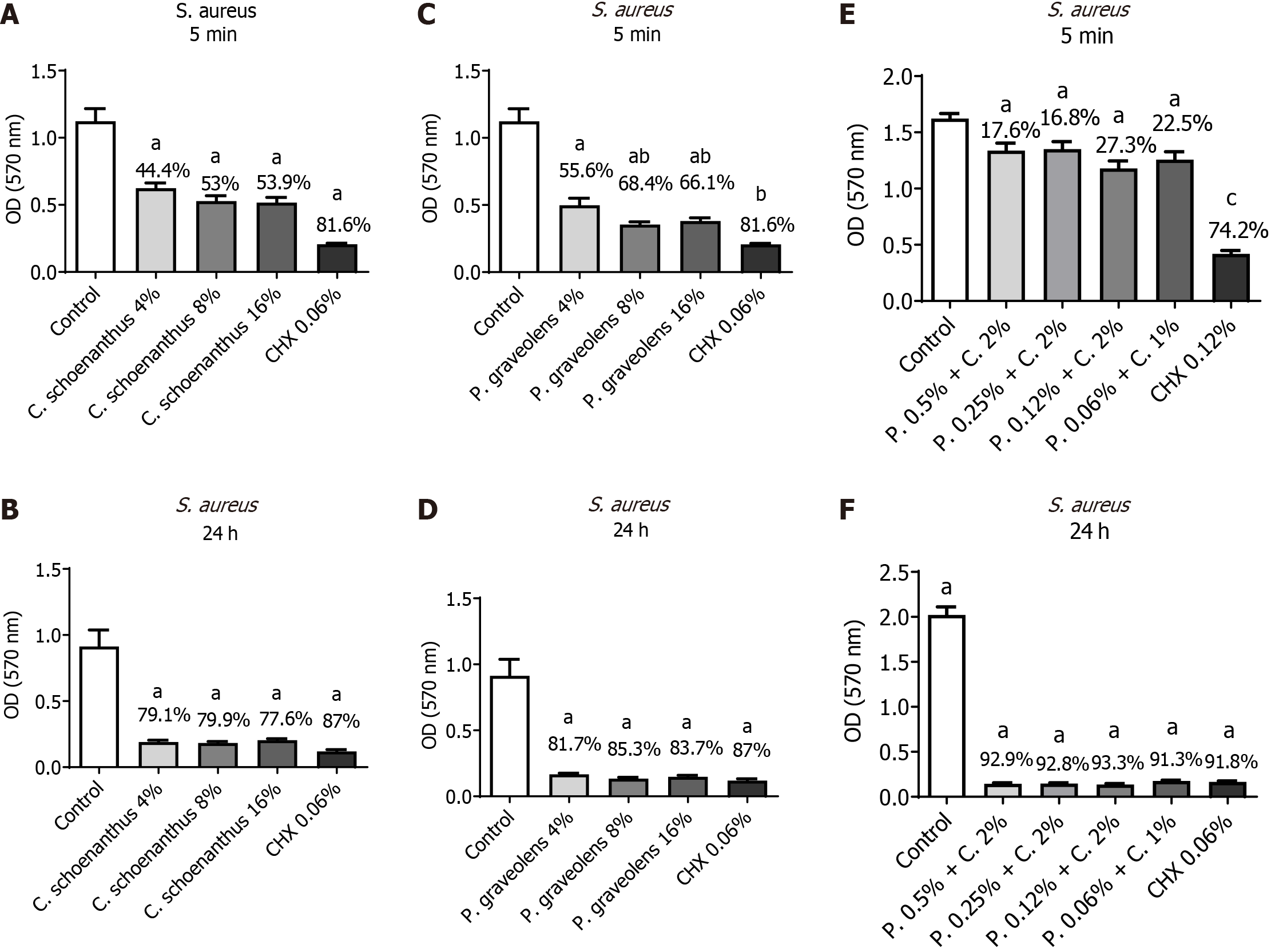Copyright
©The Author(s) 2024.
World J Crit Care Med. Sep 9, 2024; 13(3): 92531
Published online Sep 9, 2024. doi: 10.5492/wjccm.v13.i3.92531
Published online Sep 9, 2024. doi: 10.5492/wjccm.v13.i3.92531
Figure 2 Reduction of Staphylococcus aureus monotipic biofilm (in %) calculated using the MTT test after treatment with experimental groups.
Data are presented as the mean ± standard deviation. Statistical analysis was performed using one-way analysis of variance with Tukey’s post-hoc test (n = 10, α = 0.05). Statistical significance is indicated as follows: aP ≤ 0.0001 vs the control group, bP < 0.0025 vs Pelargonium graveolens 4%, and cP < 0.0001 vs all synergistic groups. A: Staphylococcus aureus biofilm treated for 5 min with Cymbopogon schoenanthus at various concentrations; B: S. aureus biofilm treated for 24 h with C. schoenanthus at various concentrations; C: S. aureus biofilm treated for 5 min with P. graveolens at various concentrations; D: S. aureus biofilm treated for 24 h with P. graveolens at various concentrations; E: S. aureus biofilm treated for 5 min with C. schoenanthus (C) and P. graveolens (P), combined, at various concentrations; F: S. aureus biofilm treated for 24 h with C. schoenanthus (C) and P. graveolens (P) combined, at various concentrations.
- Citation: de Lima PMN, Pereira TC, de Carvalho LS, dos Santos LF, Oliveira CER, Ramos LP, Marcucci MC, Abu Hasna A, de Oliveira LD. Antimicrobial and synergistic effects of lemongrass and geranium essential oils against Streptococcus mutans, Staphylococcus aureus, and Candida spp.. World J Crit Care Med 2024; 13(3): 92531
- URL: https://www.wjgnet.com/2220-3141/full/v13/i3/92531.htm
- DOI: https://dx.doi.org/10.5492/wjccm.v13.i3.92531









